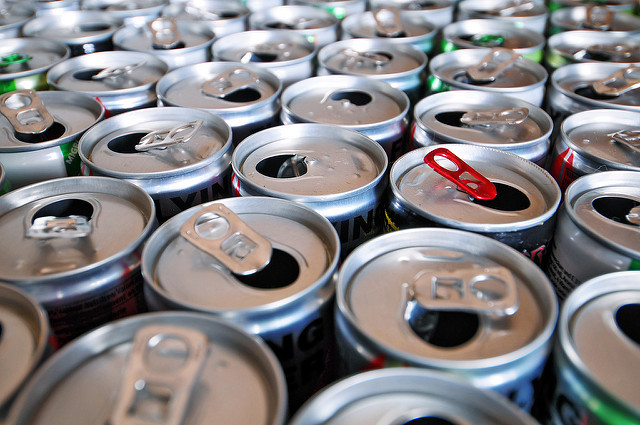Energy drink dangers: Health risks associated with them are now considered a public health issue; study calls for control on caffeine, marketing toward children
02/26/2019 / By Michelle Simmons

Throughout the years, energy drinks have become more popular, especially among teens and young adults. Energy drinks may provide that extra energy for you to survive throughout the day, but they can also contribute to ill health. A recent review suggests that energy drinks pose more serious health risks than their potential benefits.
In the study, which was published in the journal Frontiers in Public Health, a team of researchers from Harvard University critically examined previous studies on the advertised benefits, nutritional content, and health risks of consuming energy drinks. They found that consuming energy drinks not only increased the risks of heart, kidney, and dental complications, but also risk-seeking behavior and mental health problems. Furthermore, the researchers pointed out that the marketing strategies of energy drinks pose a public health threat and that the regulation of these drinks are lacking.
The review showed that the negative health effects of energy drink consumption include risk-seeking behaviors, such as drug abuse and aggression, mental health problems, such as anxiety and stress, increased blood pressure, weight gain, kidney failure, fatigue, stomachaches, and irritation. All of which were mostly attributed to their high sugar and caffeine content. A 24 oz. energy drink may contain as much as 500 mg of caffeine, which is equivalent of four or five cups of coffee. This makes caffeine the main ingredient in almost all of the energy drinks.
Josiemer Mattei, researcher and assistant professor at the Harvard T.H. Chan School of Public Health, explained how the industry of energy drink has drastically grown within 20 years and that it culminates to a generated revenue of almost $10 billion each year. According to the National Center for Complementary and Integrative Health (NCCIH) of the National Institutes of Health (NIH), energy drinks are the most well-known dietary supplement consumed by American teenagers and young adults. Moreover, males from ages 18 to 34 years old are the top consumers of energy drinks, and approximately one in three teenagers from ages 12 to 17 years old are regular drinkers of energy drinks. These energy drinks are widely advertised as products that increase attentiveness and boost physical and mental performance.

“They are often marketed as a healthy beverage that people can adopt to improve their energy, stamina, athletic performance and concentration, but our review shows there are important health consequences, and little is known about many of their non-nutritive stimulants,” Mattei said.
In addition, the researchers emphasized that mixing energy drinks with alcohol is harmful. People who mix alcohol and energy drinks together consume more alcohol compared to drinking alcohol alone as energy drinks hide the signs of drunkenness. Thus, the person will drink more, which in turn will result to dehydration and alcohol poisoning. (Related: Energy drinks mixed with alcohol trigger cocaine-like effects in teenagers.)
Following the findings of the study, the researchers pointed that the regulations of energy drinks in the United States are lacking. Mattei and her team wrote that in order to reduce the health consequences and public health issues of energy drink intake, public health and policy action must be taken.
“The evidence suggests they are harmful to health and should be limited through more stringent regulation by restricting their sales to children and adolescents, as well as setting an evidence-based upper limit on the amount of caffeine,” Mattei explained.
Mattei also noted that even though their review is limited because there is not much research in the area, there is sufficient evidence to imply that the short-term benefits of energy drink intake is outweighed by its negative health effects.
Natural energy-boosting tips
So, instead of drinking energy drinks, here are tips to boost your energy naturally:
- Manage stress.
- Do not overwork.
- Be physically active.
- Refrain from smoking.
- Sleep regularly and consistently.
- Eat energy-rich foods.
- Drink coffee judiciously.
- Reduce alcohol intake.
- Stay hydrated.
Read more natural ways to bolster your energy at Natural.news.
Sources include:
Submit a correction >>
Tagged Under:
caffeine, children's health, energy drinks, energy-boosters, food industry, food marketing, marketing strategies, Public Health, toxic ingredients
This article may contain statements that reflect the opinion of the author





















